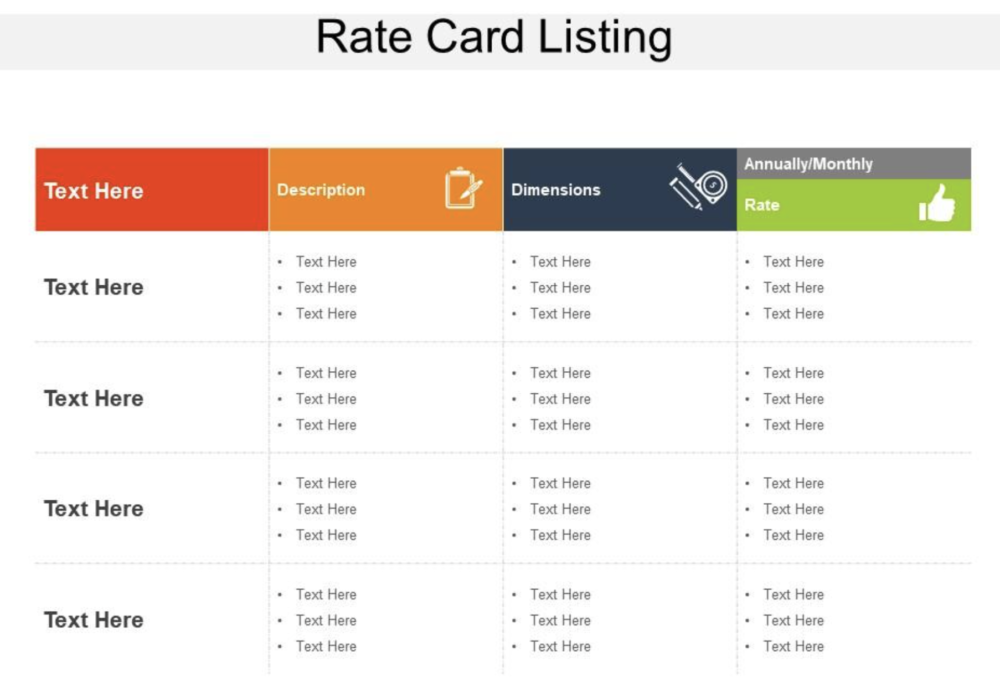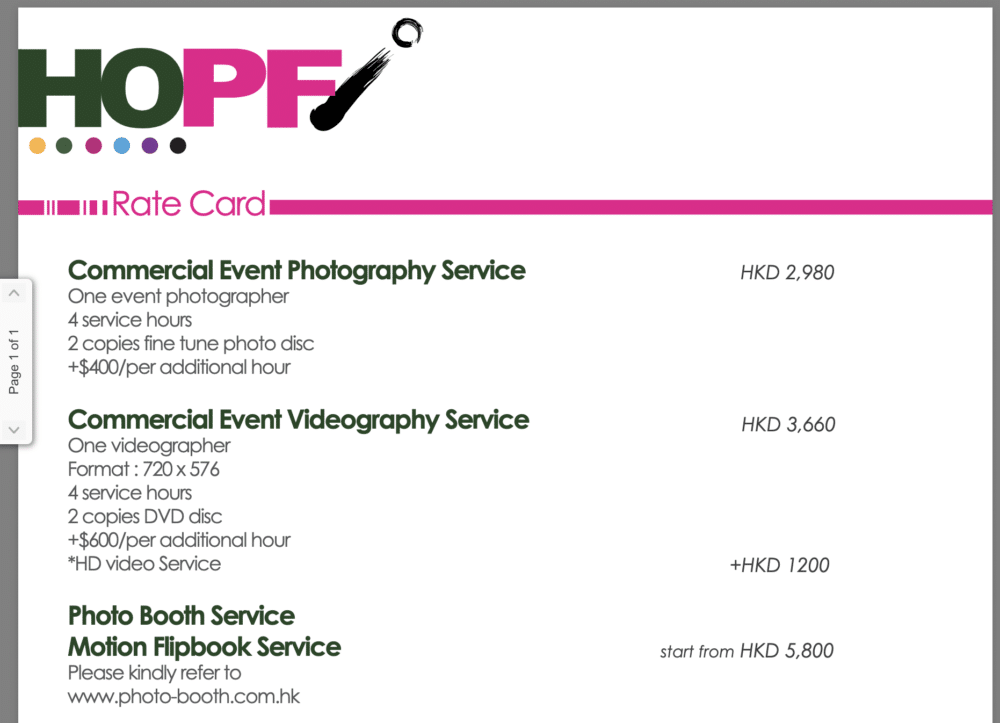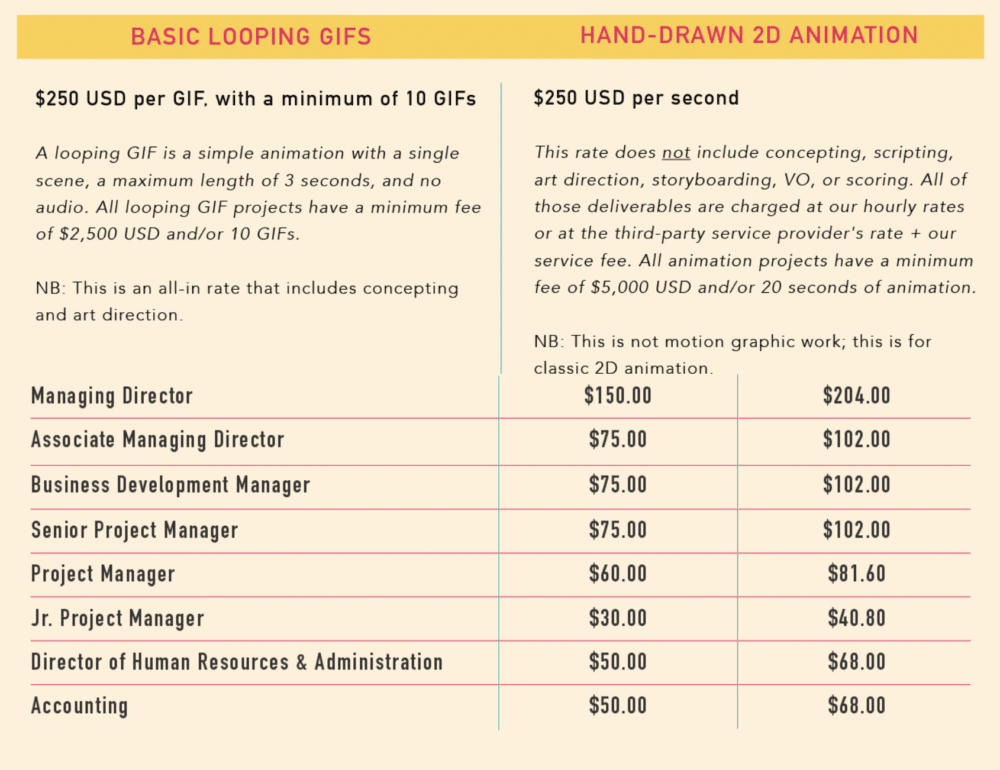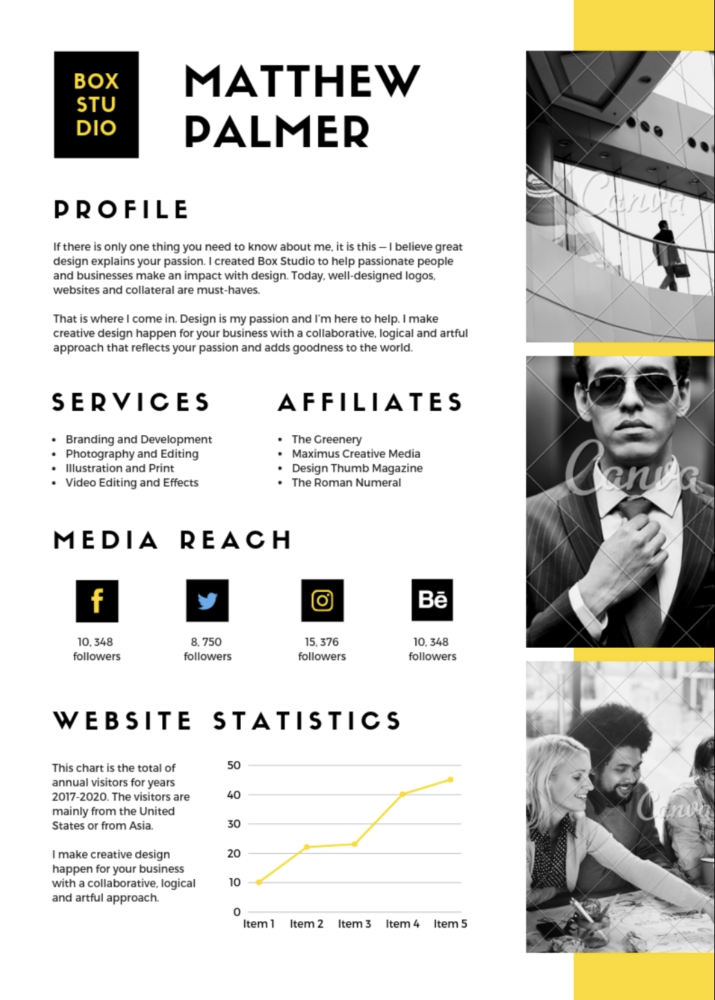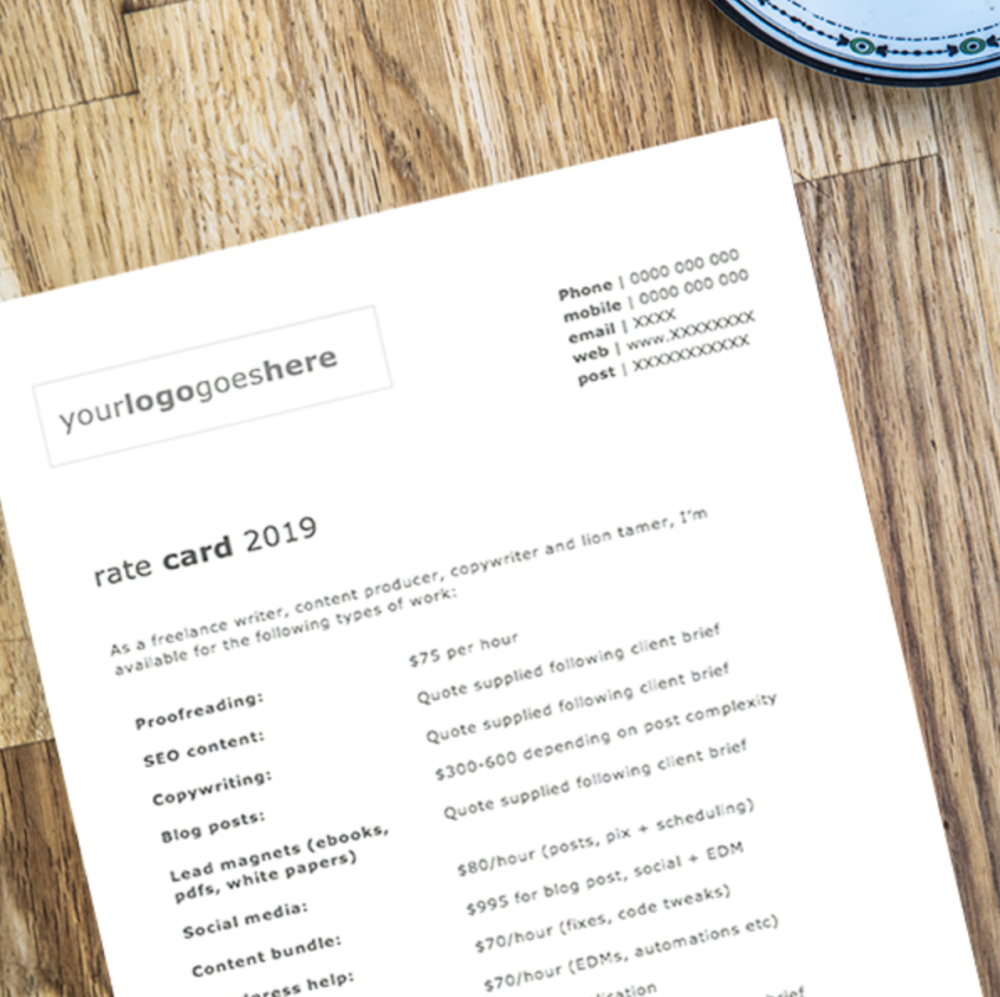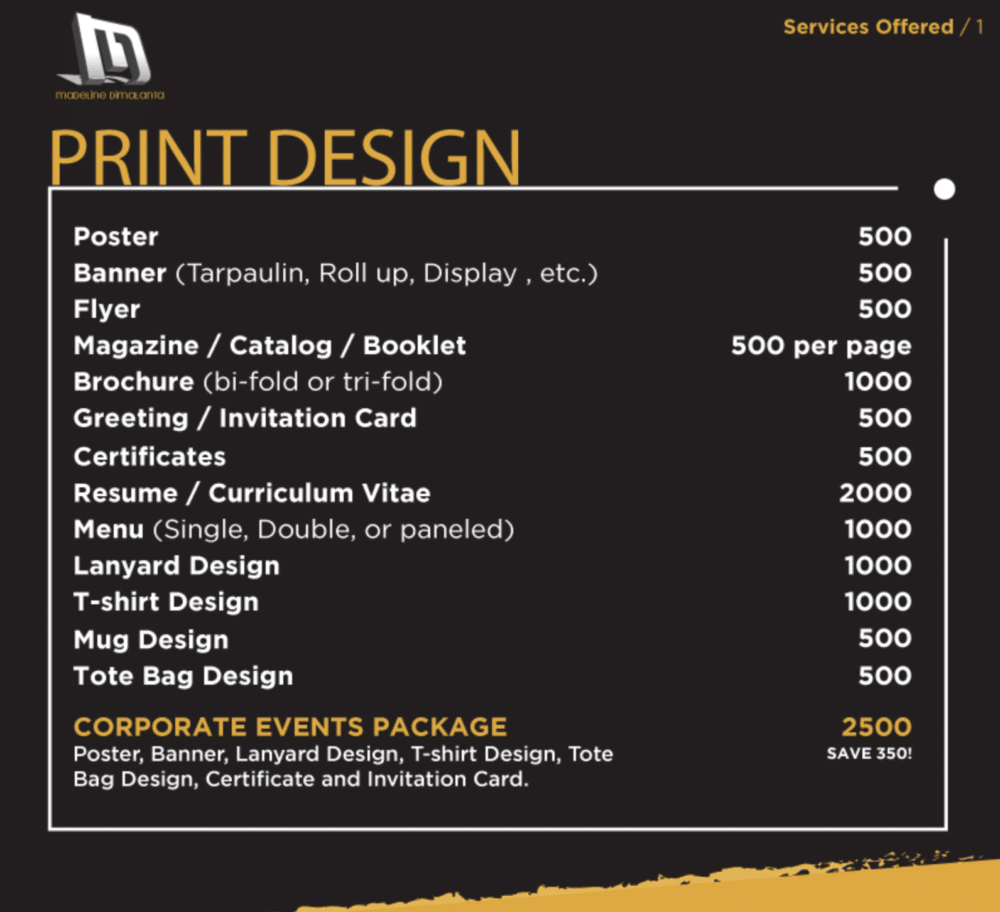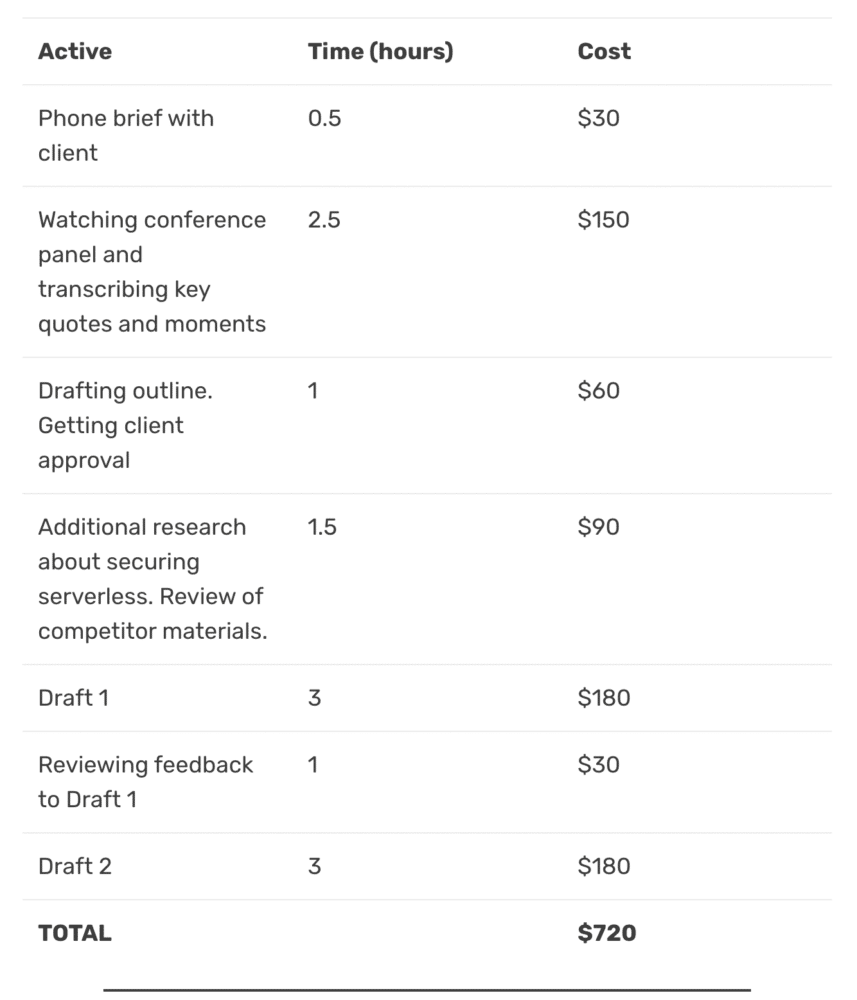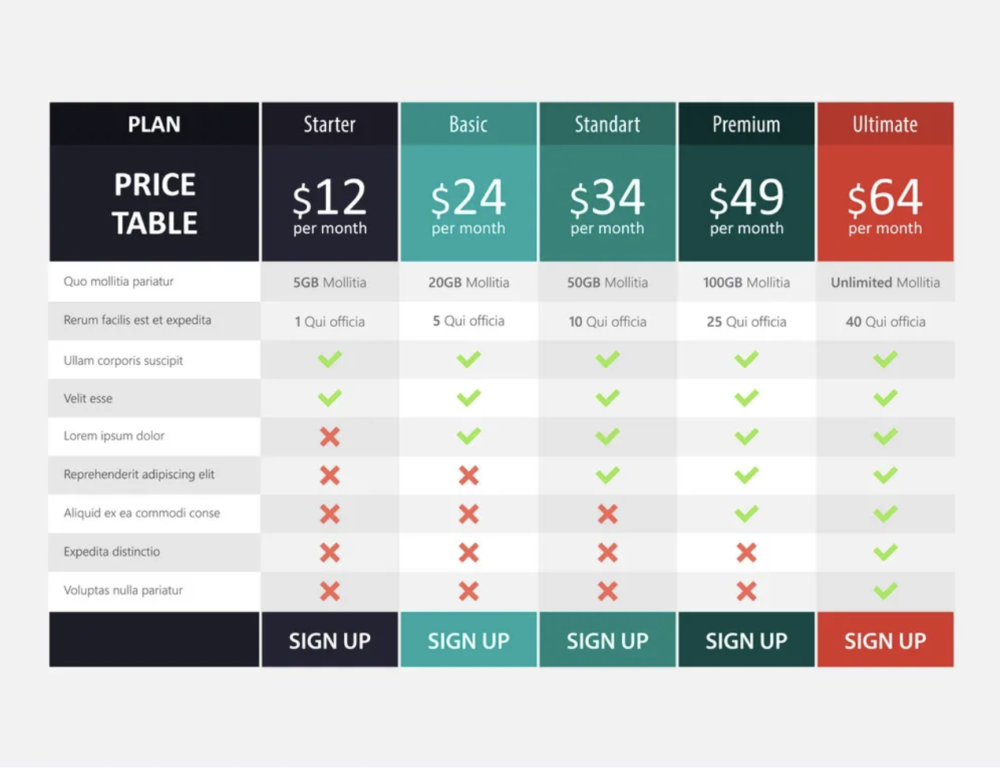Figuring out what to charge is one of the most difficult parts of freelancing. You set your own rates and pricing structure without a lot of outside information, and it can be hard to know what other contractors are charging for similar services. That is one reason that when someone asks the dreaded question, “How much do you charge?” it pays to be prepared with a freelance rate card.
What is a freelance rate card and why do I need it?
At its heart, a freelance rate card is a sales tool. It’s part resumé, part pitch, and usually includes a comprehensive list of services and pricing that you (or your clients) can refer to to price out projects. It may also feature some of the clients you have worked with, and maybe a small testimonial. The best rate cards are well thought-out, professional looking, and concise.
Having a freelance rate card is obviously convenient for you, since you don’t have to start at square one every time you are setting up a project proposal. But there are other reasons a freelance rate card makes sense.
Stability
If you charge every client a different rate, not only will billing be a nightmare, but it can be hard to estimate your earnings, calculate taxes, and figure out overhead costs. Setting base rates gives you a better idea of what you can earn in a given month.
Start with our free Freelance Rate Calculator to get an idea of what you should be charging as a freelancer.
It’s also tricky for clients to estimate their costs when every time they send you a project, the price varies. There are solid reasons for the differences, and having a price list helps explain those discrepancies. Clients can refer back to the original list to get an idea of the cost before they contact you, so there are fewer surprises on both sides of the equation.
Of course there will always be situations where your freelance rate card fails you. Long-term clients often have grandfathered rates, for example. A project with elements that you have never done before will need a new estimate. However, the rate card is a great reference point to help guide you even in unusual circumstances.
Qualifying Clients
If you have been in the freelance world for a long time, you know that certain types of clients are always hunting for a bargain. There will always be projects that aren’t a good fit budget-wise.
If you have to talk through every detail of the work before you talk about money, you may find that you’ve wasted a lot of valuable time on a client who cannot afford your services.
Sending out a rate card gives people a good idea of what to expect, so you weed out the clients who aren’t prepared to pay professional rates before engaging in a lot of back and forth. This saves time, money, and a lot of frustration for both you and your potential clients.
Present Professionally
When you walk into a job interview, you come dressed for the part, resumé in hand and ready to present yourself in the best possible light. Many freelancers never meet their clients face to face, but a freelance rate card can help provide that professional front.
When a client comes to you with billing questions, having a brilliantly styled, well organized freelance rate card to send them instead of hemming and hawing and taking days to reply says volumes about the kind of worker you are.
4 Steps to create your freelance rate card
Alright, you are sold, you need a freelance rate card. How do you get started? It might seem relatively simple to write down what you want to charge, but to create something that is both useful and professional, there’s a bit more to it than that.
1. Make a list of all the services you provide
You can always edit the list later, so try to be really comprehensive here. Think about any projects you’ve done in the past and what you’d like to focus on in the future.
You can have two versions of your freelance rate card: one you send to clients, and one you keep for your own reference, so include all of the services you can think of, not just the ones you publicly advertise.
2. Include deliverables
Deliverables are specific assets clients can expect to receive for their money. Deliverables are concrete things like blog posts, web pages, reports, a logo design, etc. It can be helpful to group things in sets of related services.
For example, I’m a writer, so I may have a section for blog writing vs. long-form articles vs. work for books. Each service is unique, so the per word or per hour rate will be different. Consider extras that clients may need to pay for, like stock art, copyrights, templates, or long-term account maintenance.
3. Determine your base rate
One of the easiest ways to decide how much to charge is to work backwards. What is your target annual salary? How many hours do you want to work each week? Plan for time off, and don’t forget about taxes. This will help you decide what you need to bill clients.
Depending on your experience and the kinds of clients you work with, you may need to build up to your desired rate over time. Use this target base rate to fill in what is fair for the time and effort each service or deliverable will take you. You can use your base rate to set hourly or project-based rates, but knowing your target will help you estimate this.
4. Decide on a format
Most freelancers will have a digital rate card, but some may need a physical sheet to hand clients. Either way, you’ll likely have a long-form rate card that helps you set your rates for proposals or speak with clients on the phone, and a succinct, 1-page version that you send out to interested parties. The freelance rate card that you send out should be easy to understand and represent you as a contractor.
8 Freelance rate card examples
There is no need to invent something completely from scratch. Many freelancers have already created amazing rate cards, and some have graciously shared them as a resource. Here are some of the best examples to get you thinking about what kind of freelance rate card you want to create.
1. Simple template from SlideTeam
A freelance rate card could be embedded in a powerpoint presentation with a few other informational slides. This slide shows how color and layout can be used to organize information in an eye-catching way.
2. Photography rate card from pdfFiller
This free template shows how you can divide and group services and package them together in a way that makes sense. Of course, you fill in with the rates and offerings that make sense for your business.

3. Percolate Galactic role rate card
This is not a freelance rate card, but it’s a great example of how a rate card can be reflective of your brand. This one features rates for individual roles as well as project deliverables.
4. Graphic design rate card from Canva
This stylish example shows how you can incorporate more than just numbers on a freelance rate card. It incorporates the elevator pitch at the top, a list of services and qualifications. Pricing could be added in as fits your situation.
5. Minimalistic design from Rachel’s List
This template is available for purchase for $7.95. It’s simple design can help get you started with an idea of what services you might offer for sale. The template starts out with writing services, but could be adapted for any niche.

6. Artist rate card by Madeline Dimalanta
This fantastic freelance rate card is hosted on Behance.net, a popular marketplace for freelance artists. Uploading her rate card with her portfolio is a smart way for Madeline to attract new clients from all over the world.
7. Project specific rate card from Daniel Rosehill
Rosehill, a ghostwriter, has some set rates, but chooses to make a more specific freelance rate card for each client. Using a template like this, dropping in details from your personal rate card can be a smart way to keep your rates realistic depending on the project.
8. Pricing table from VectorStock
A freelance rate card is sometimes presented as a pricing table, which is a minimalistic way of showing prices to clients. This template, available for purchase, is versatile enough to work for any industry, and it looks great.
Make your freelance rate card with confidence
Freelance pricing can be tough to navigate, and a freelance rate card can help solve the problem of freezing up when you are negotiating fees with a potential buyer. Not all projects will fit neatly into the little boxes on your rate card, but having that base reference will really simplify the process of bidding out whatever work comes your way.
Use these steps and examples as a starting point for the perfect, individually tailored freelance rate card that fits your brand and services. This powerful resource will change the way you look at pricing and set financial goals—what are you waiting for?
Keep the conversation going...
Over 10,000 of us are having daily conversations over in our free Facebook group and we'd love to see you there. Join us!


